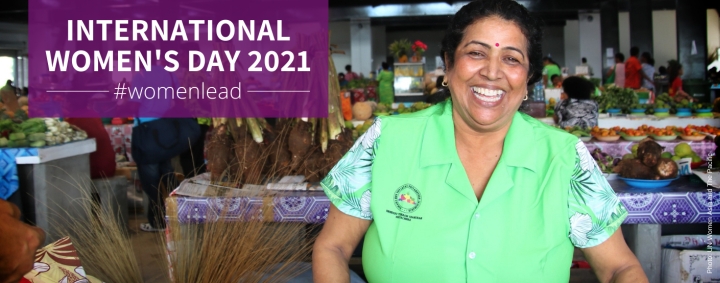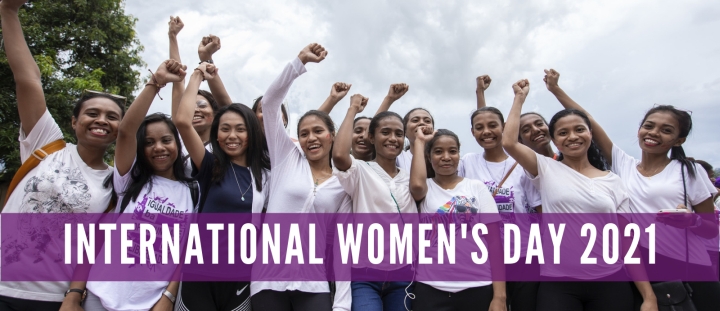Women in Leadership: Achieving an equal future in a COVID-19 world
The global UN Women theme for International Women’s Day 8 March 2021 is “Women in Leadership: Achieving an equal future in a COVID-19 world”. This theme celebrates the tremendous efforts by women and girls around the world in shaping a more equal future.

Women bear the brunt of problems ranging from poverty to climate change, but they also possess assets and talents to solve them.
“What do Erna Solberg, Sanna Marin, Katrín Jakobsdóttir and Mette Frederiksen have in common apart from all four being female prime ministers (of Norway, Finland, Iceland and Denmark, respectively)? The answer is that their countries have much lower rates of Covid-19 infection than male-led neighbouring nations such as Ireland, Sweden and the UK.
Are those facts connected? There’s a growing body of evidence to suggest they may be.“
Prioritising women’s leadership is central to creating more profitable and productive economies, flourishing businesses and a healthier and more peaceful planet
Prioritising women’s leadership is not only the right thing to do, it will also dramatically strengthen our society.
There is a growing understanding and expectation that leadership in all facets of economic, political and social life must reflect communities for the benefit of all:
- Organisations miss out on 50% of the talent pool if women are not around decision-making tables.
- More diverse and inclusive groups have higher safety and operational performance.
- More women on boards and senior leadership roles result in improved company performance, profitability and productivity.
- When women are at the negotiating table, peace agreements are more likely to last 15 years or longer.
Therefore, it is essential that we promote women’s leadership and feminist approaches as part of coronavirus response efforts, and as part of our longer-term approach to overcoming the increasing inequity in our society which damages us all.
(Increasing inequality leads to less stable economies, a decrease in per capita income, worse health and well-being (even decreasing life expectancy of the rich), an increase in property crime and violent crime, less trust, lower engagement in social or civic participation and lower levels of happiness.)
As a consequence, we must all consider how we can promote inclusion and reduce the barriers that women face in becoming leaders in the community, politics and businesses.
Elevating women’s voices
As one of the first steps in prioritising women’s leadership, we must elevate women’s voices.

For this to happen, men should change the way they take up space and provide more space for women’s voices. This will happen best when the patriarchal nature of our society is acknowledged and challenged by both men and women.
“You cannot dismantle what you cannot see. You cannot challenge what you don’t understand” Layla F. Saad
A recent poll which found that 62% of men and 39% of women agreed with the statement that “Gender equality has already been mostly achieved” suggests that many men are still blind to the power imbalance at the heart of the patriarchy that we live under.
We must also recognise that the gendered nature of the power imbalance can be compounded by the impact of colour, class, culture, (dis)ability, religion and the life experience of women.
“Research shows that when you ask a six-year-old boy or girl to draw a picture of a genius, scientist or corporate CEO, more often than not they draw men. When those pictures begin to change, we will know that serious progress is being made”.
Kweilin Ellingrud
Therefore, on this International Women’s Day we must be prepared to consider how we can disrupt the power imbalance that is the basis of the inequity women experience. We must never stop talking about power and we should always work to share power.
When we harness the assets and talents of women and make seats around decision-making tables, women’s contributions are significant, and take into consideration the needs and concerns of whole communities to deliver innovative policy and business solutions, creating better outcomes for everyone.